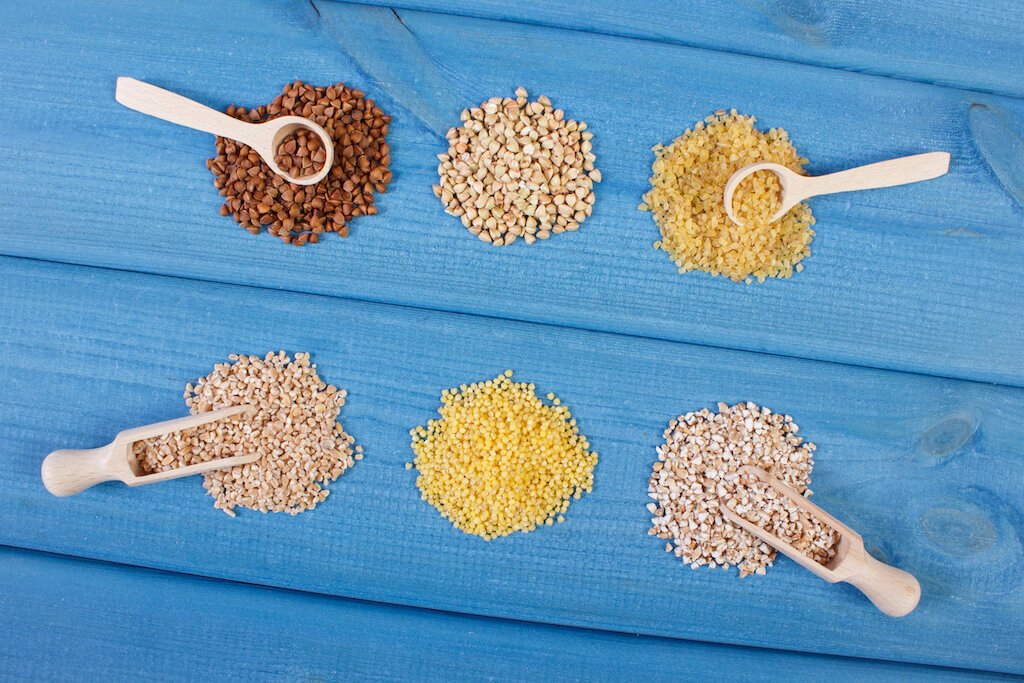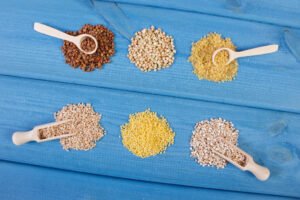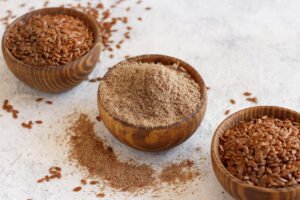When it comes to canine diets, few topics stir up as much debate as the inclusion of grains. From passionate blog posts to heated forum discussions, the question of whether grains are good or bad for dogs seems to be a recurring controversy. Today, we’re diving deep to dispel myths and provide a clearer picture of the impact of grains on dog health.
Understanding Grains in Dog Food
Grains such as wheat, corn, rice, barley, and oats are common in many dog foods. They serve as a source of carbohydrates, essential fatty acids, and fiber. They are also packed with important nutrients like protein, vitamins, and minerals. It’s crucial to differentiate between whole grains and refined grains. Whole grains include all parts of the grain kernel and offer more nutritional benefits compared to refined grains, which have been processed and stripped of many nutrients.
While discussing the role of grains in dog food, it’s also useful to explore the opposite perspective. Learn more about the benefits and potential drawbacks of grain-free diets in our detailed article, The Truth About Grain-Free Diets: Beneficial or Harmful?.
Debunking Common Myths
Myth 1: Grains Cause Allergies in Dogs
While it’s true that some dogs can be allergic to grains, it’s not as common as you might think. In fact, studies show that common allergens for dogs are actually beef, dairy, and chicken. Grain allergies do exist, but they are relatively rare.
Grain allergies in dogs are less common than many think, but for those interested in grain-free options, read our article Debunking Myths About Grain-Free Diets for Dogs to understand more about alternative dietary choices.
Myth 2: Grains Are Just Fillers
Grains are often labeled as fillers with no nutritional value, but this isn’t accurate. Quality whole grains can contribute valuable nutrients, including vitamins, minerals, and fiber, which help in digestion and can improve stool quality. They are not merely fillers but components that can contribute to a balanced diet.
Myth 3: Grains Cause Obesity
Obesity in dogs is typically the result of excessive calorie intake, not necessarily the presence of grains. Proper portion control and a balanced diet are crucial. Grains can actually be a part of a healthy diet, providing the energy that active dogs need to maintain their lifestyles.
Understanding the role of grains in weight management is crucial. For more comprehensive tips on maintaining a healthy weight for your dog, check out our guide on Nutrition Tips for Weight Management in Dogs.

The Benefits of Grains in a Dog’s Diet
- Energy Supply: Carbohydrates from grains provide energy that helps keep dogs active and healthy.
- Digestive Health: The fiber in whole grains promotes good digestive health and regular bowel movements.
- Nutrient-Rich: Whole grains include essential nutrients such as protein, fiber, vitamins B and E, and minerals like magnesium.
When Grains Might Not Be Suitable
Despite the benefits, there are some situations where grains might not be the best choice for certain dogs:
- Grain Allergies: If a dog is diagnosed with an allergy to a specific grain, it should obviously be excluded from their diet.
- Special Health Conditions: Dogs with specific health issues, like yeast infections or certain gastrointestinal diseases, might require grain-free diets. Always consult with a vet to understand the best dietary choices for these conditions.
Choosing the Right Food for Your Dog
When selecting a dog food that includes grains, it’s important to look for whole grains and avoid foods with lots of grain by-products or refined grains. Read labels carefully and choose brands that prioritize quality ingredients. The choice between grain-inclusive and grain-free food should depend on your dog’s specific health needs, preferences, and any allergies they might have.
Selecting the right dog food involves understanding the full spectrum of canine nutrition. For a deeper dive into the basics of a natural diet for your dog, refer to Understanding the Basics of Canine Nutrition for a Natural Diet.
Conclusion
Grains are not inherently bad for dogs. Like any food item, the key lies in understanding how they fit into a balanced, nutritious diet tailored to your dog’s individual needs. Before making significant changes to your dog’s diet, especially if they have health conditions or food sensitivities, it’s advisable to consult with a veterinarian. This ensures that your beloved pet receives all the nutrients they need without any adverse effects. Remember, every dog is unique, and what works for one may not work for another.
For owners of dogs with specific grain allergies or sensitivities, finding the right diet is crucial. Dive deeper into our Ultimate Guide to Hypoallergenic Diets for Dogs for tailored dietary recommendations.
Useful Links:
Tufts University Cummings Veterinary Medical Center – Petfoodology:
Explore evidence-based articles and resources on pet nutrition, including insights into the role of grains in dog diets, from Tufts University’s renowned veterinary medical center.
Whole Dog Journal – Nutrition Articles:
Access a collection of nutrition articles from Whole Dog Journal, covering various aspects of dog diet and health, including discussions on grains and their impact on canine well-being.
The Bark – Dog Nutrition & Diet Articles:
Discover informative articles on dog nutrition and diet from The Bark magazine, offering expert insights and advice on feeding practices, ingredients, and dietary considerations, including discussions on grains.
Common FAQ’s
Are grains bad for dogs?
- Answer: Grains are not inherently bad for dogs. In fact, they can provide valuable nutrients such as carbohydrates, essential fatty acids, vitamins, and minerals. However, some dogs may have grain allergies or sensitivities, so it’s essential to monitor your dog’s reaction to different ingredients.
Do grains cause allergies in dogs?
- Answer: While some dogs can be allergic to grains, such allergies are relatively rare compared to other common allergens like beef, dairy, and chicken. Grain allergies do exist but are not as prevalent as often assumed.
Are grains just fillers in dog food?
- Answer: Grains are often misunderstood as fillers with no nutritional value. However, quality whole grains can provide essential nutrients, including protein, fiber, vitamins, and minerals, contributing to a balanced diet for dogs.
Do grains contribute to obesity in dogs?
- Answer: Grains themselves do not directly cause obesity in dogs. Obesity is typically the result of excessive calorie intake and lack of physical activity. Grains can be part of a healthy diet when fed in appropriate portions and balanced with other nutrients.
Should I feed my dog grain-free food?
- Answer: Whether to feed your dog grain-free food depends on various factors, including your dog’s health, dietary preferences, and any known allergies or sensitivities. Grain-free diets may be suitable for some dogs, but it’s essential to consult with a veterinarian before making significant dietary changes.

























